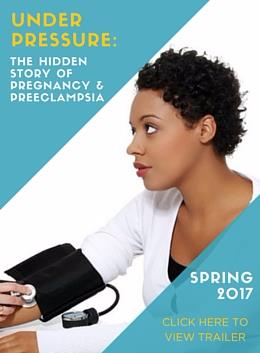Sammy Nickalls OCT 5, 2017
On Tuesday, the American Civil Liberties Union (ACLU) filed a lawsuit in Hawaii federal court challenging the U.S. Food and Drug Administration (FDA) to change its regulations on the abortion pill. The ACLU is fighting to make the pill more accessible to women and people who can get pregnant, as currently, the FDA prohibits mifeprestone (one of two drugs needed for a medication abortion) from being available at a pharmacy.
“The abortion pill is safe, effective, and legal. So why is the FDA keeping it locked away from women who need it?” Julia Kaye, an attorney with the ACLU Reproductive Freedom Project, said in a statement. “The FDA’s unique restrictions on medication abortion are not grounded in science — this is just abortion stigma made law.”
The abortion pill is widely believed by physicians to be a safe and extremely effective way to end an early pregnancy. So why is this an issue? We spoke to experts to deep-dive into the abortion pill — and the systemic issues surrounding its limited access.
How does the abortion pill work?
Melissa Grant, chief operations officer for carafem Health, explains that the abortion pill is actually a combo of two different medications, mifepristone and misoprostol, which can be provided by your doctor and used at home within the first 70 days of a pregnancy to safely end it. When these medicines work together, they block progesterone, a hormone your body needs to keep a pregnancy going.
It’s actually like having a period. “By blocking progesterone, the uterine lining — where a normal pregnancy resides — begins to shed,” Dr. Kecia Gaither, double-board-certified physician in OB/GYN and maternal fetal medicine, told Teen Vogue. “[A]dditionally, the cervix also begins to soften.”
While it may cause cramps and bleeding similar to your typical period, it’s a safe, simple, and noninvasive way to provide reproductive care. Grant said that the abortion pill is “very safe” and “very effective,” adding that the vast majority — 93 to 98% — of people who use it need no medical treatment or follow-up after their visit.
Despite its effectiveness, access “continues to be a struggle for many people,” according to Grant. “It is not uncommon for a woman [with] an unintended pregnancy to have to travel many miles from her home to find an abortion provider when she needs one,” she said. “…At [the carafem Health] location in Georgia, almost 20% of our clients drive over 100 miles to obtain an abortion.”
Why is the ACLU suing?
The ACLU’s lawsuit is an attempt to fight FDA guidelines that heavily restrict women’s access to the abortion pill — and it all has to do with mifepristone, which you can only legally acquire through a provider who fits specific requirements, like being registered with the medicine’s manufacturer, or stocking the abortion pill in their own office — the latter of which Grant calls a “very unusual and unnecessary restriction placed on an extremely safe medication.” And in this case, it’s not a better-safe-than-sorry thing.
“While many primary care providers already have a trusted and caring relationship with their clients, and may be very willing to prescribe and help a client use the abortion pill, the cost of acquiring and storing the medicine is very high and may be too much of a barrier to keep it in stock in their office,” Grant told Teen Vogue. “Pharmacies are experts at ordering, storing, and providing medications to clients, and doing so with more flexible hours than those available to many medical offices. Why should this safe and relatively common medication be provided in any other way?”
Why does this matter?
Government efforts to outlaw abortion are not only senseless — they’re deadly, Grant explains. “Efforts to end abortion through restrictive laws only increases the shame and desperation for those seeking abortion,” she told Teen Vogue. “It does nothing to decrease the number of unintended pregnancies or the number of abortions.”
The harder it is to get an abortion, the more likely it is that unsafe abortions will skyrocket — leading to abortion-related deaths. “[H]aving medication abortion available in pharmacies reduces barriers for people needing this basic health care service by increasing the number of providers women can reach out to when looking for an option for an early, safe, and private abortion,” Grant said. “These are good steps towards decreasing abortion stigma while assuring better health outcomes for all people.”






